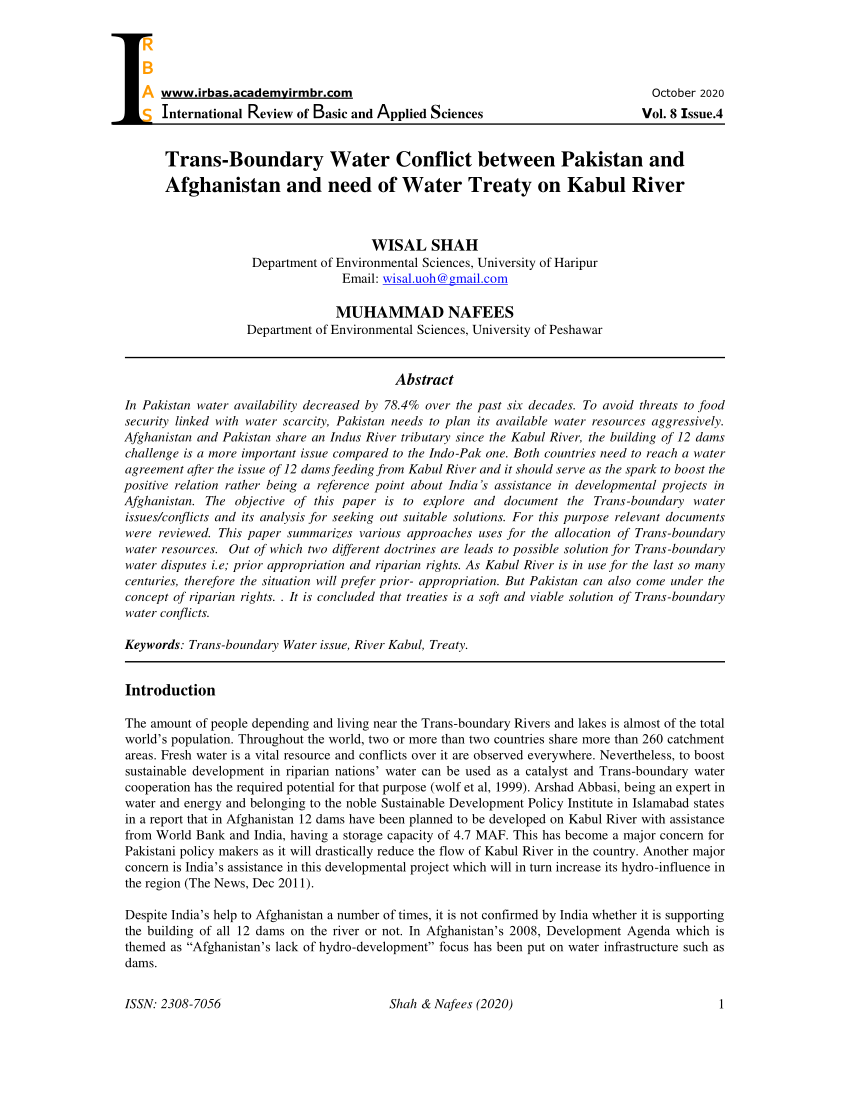CSSInternational Relations-II
Q. No. 4. What would be the reasons of emerging water conflict between Pakistan and Afghanistan. 2021

The potential reasons for an emerging water conflict between Pakistan and Afghanistan can be attributed to the following factors:
- Water Scarcity and Demand: Both Pakistan and Afghanistan face water scarcity and increasing demand due to population growth, urbanization, and agricultural needs. The shared water resources, particularly the Indus River system, are crucial for both countries’ water supply. As water becomes scarcer, competition for access to and control over water resources can intensify, leading to tensions and conflicts.
- Upstream Infrastructure Development: Afghanistan’s plans to develop water infrastructure, such as dams and irrigation systems, along shared rivers can raise concerns for downstream Pakistan. Upstream development projects can affect water flow, leading to reduced water availability and disrupting agricultural practices and hydropower generation in Pakistan. Disputes may arise if these projects are perceived as unfair or negatively impacting downstream water rights.
- Transboundary Water Management: The management and allocation of transboundary water resources require cooperation and agreements between riparian countries. In the absence of robust bilateral agreements and effective mechanisms for water sharing, conflicts can arise. Disputes may occur over issues such as water allocation, maintenance of minimum flows, monitoring mechanisms, and dispute resolution mechanisms.
- Political and Security Considerations: Political tensions and security challenges between Pakistan and Afghanistan can exacerbate water-related conflicts. Historical and ongoing disputes over territorial boundaries, cross-border terrorism, and strained bilateral relations can spill over into water-related disagreements, making resolution more challenging.
- Climate Change Impacts: The impacts of climate change, such as altered precipitation patterns, glacial melt, and changes in water availability, can further strain water resources and escalate conflicts. As climate change affects the region, including the Hindu Kush Himalayan region, the availability and distribution of water can be significantly affected, leading to increased competition and disputes.
- Historical Water-related Disputes: Historical disputes and unresolved issues related to water sharing between Pakistan and Afghanistan can contribute to the emergence of a water conflict. For example, disagreements over the distribution of water from the Kabul River, which flows through Afghanistan before entering Pakistan, have persisted for years without a comprehensive resolution.
To mitigate the potential for water conflicts, dialogue, negotiation, and cooperation are crucial. Establishing robust bilateral agreements on water sharing, implementing joint management mechanisms, promoting transparency in infrastructure development, and engaging in regional cooperation platforms can help address water-related challenges and reduce the risk of conflicts between Pakistan and Afghanistan.